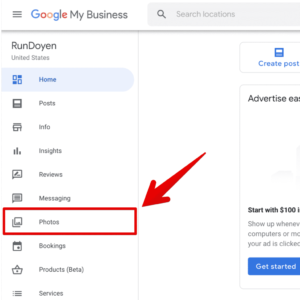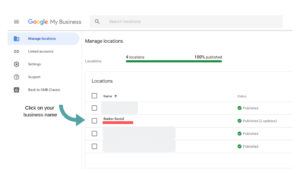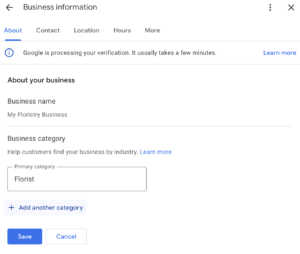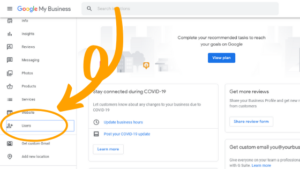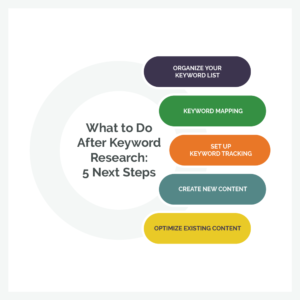The best tools for keyword research include Google Keyword Planner, Ahrefs, and SEMrush. These tools provide valuable insights into search volumes and competition.
Keyword research is crucial for SEO success. It helps identify the terms your target audience uses. By understanding these search terms, you can optimize your content to rank higher in search engine results. Google Keyword Planner offers data directly from the source, making it reliable.
Ahrefs and SEMrush provide comprehensive tools that analyze keywords, backlinks, and competitors. Choosing the right tool depends on your specific needs and budget. Effective keyword research can significantly boost your website’s visibility and drive more organic traffic. Use these tools to gain a competitive edge and enhance your online presence.
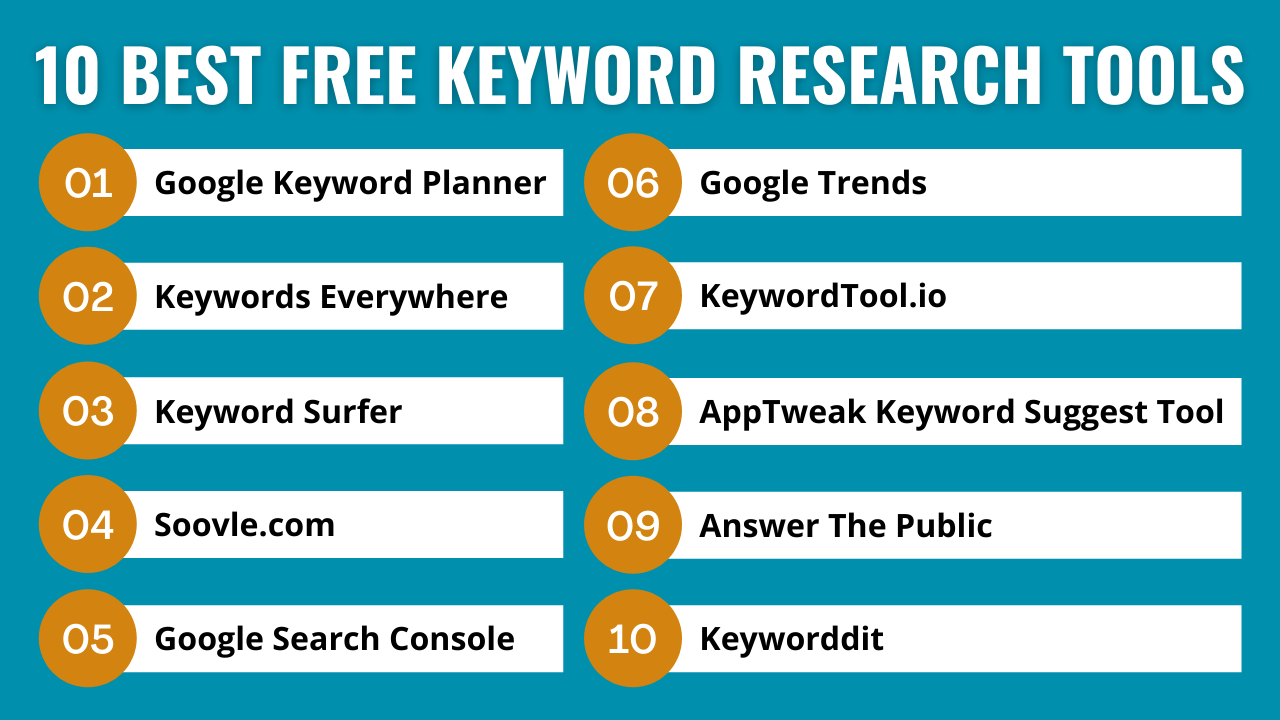
Credit: surfsideppc.com
The Importance Of Keyword Research
Keyword research is the backbone of any successful SEO strategy. It helps you understand what your audience is searching for. This allows you to create content that meets their needs. By finding the right keywords, you can drive more traffic to your site. This means more potential customers and higher revenue.
Crucial For Seo Success
Keyword research is crucial for SEO success. It helps you discover the most relevant keywords for your niche. These keywords can improve your search engine ranking. Higher rankings mean more visibility for your website. This translates to more organic traffic and potential leads.
Let’s look at some key reasons why keyword research is so important:
- Helps you understand market demand.
- Identifies gaps in your content strategy.
- Enables targeted marketing campaigns.
- Improves user experience on your site.
- Boosts your site’s credibility and authority.
Understanding User Intent
Understanding user intent is a key aspect of effective keyword research. User intent refers to what the searcher is looking to achieve. It could be finding information, making a purchase, or solving a problem. By understanding user intent, you can create content that directly addresses their needs.
There are three main types of user intent:
- Informational: The user seeks information or answers.
- Navigational: The user looks for a specific website or page.
- Transactional: The user aims to make a purchase or complete a transaction.
Identifying the intent behind keywords helps you tailor your content effectively. This not only improves your SEO but also enhances user satisfaction. Happy users are more likely to convert into loyal customers.

Credit: www.shoutmeloud.com
Starting With The Basics
Starting keyword research can seem confusing. But it’s essential for SEO. Understanding the basics is the first step. This section will explain what keywords are and their types.
What Are Keywords?
Keywords are words or phrases. People type them in search engines. These words help search engines understand content. They connect users with relevant information.
Types Of Keywords
There are different types of keywords. Each serves a unique purpose. Knowing these types helps in choosing the right ones.
- Short-Tail Keywords: These are one or two words. Examples include “shoes” or “laptops”. They are broad and have high search volume.
- Long-Tail Keywords: These are longer phrases. Examples include “best running shoes for women” or “affordable gaming laptops”. They are specific and have lower search volume.
- LSI Keywords: These are related keywords. They provide context to the main keyword. For example, for “Apple”, LSI keywords could be “iPhone”, “MacBook”, or “Apple Store”.
- Branded Keywords: These include brand names. For instance, “Nike shoes” or “Apple laptops”. They are specific to a brand.
- Non-Branded Keywords: These do not include brand names. Examples are “running shoes” or “gaming laptops”. They are generic.
Understanding these basics helps in choosing the right tools. The next sections will cover the best tools for keyword research.
Free Tools To Jumpstart Your Research
Starting with keyword research can feel like a big task. Luckily, there are free tools that make it easier. These tools help find the right keywords for your website. This can boost your SEO and bring more visitors to your site.
Google Keyword Planner is a powerful tool. It is free and easy to use. You can find keywords with just a few clicks. Here’s what you can do with it:
- Find new keywords related to your business.
- Get search volume and forecasts.
- See how certain keywords might perform.
To start, you need a Google Ads account. Don’t worry, it’s free. Once logged in, you can explore many keyword ideas. This tool also shows you how popular a keyword is. This helps you pick the best ones for your site.
Ubersuggest is another great tool for keyword research. It was created by Neil Patel, a well-known SEO expert. This tool offers many features:
- Find new keywords and ideas.
- See how hard it is to rank for a keyword.
- Get data on search volume and trends.
Ubersuggest also shows you the top-ranking pages for each keyword. This helps you understand what works well in your niche. You can use this info to improve your own content. Best of all, many features of Ubersuggest are free.
Using these tools, you can start your keyword research without spending money. Both Google Keyword Planner and Ubersuggest offer valuable insights. They help you find the right keywords to boost your SEO.
Premium Tools For Serious Marketers
For marketers aiming to dominate search engines, premium keyword research tools are essential. These tools offer advanced features and in-depth insights. Serious marketers need powerful tools for their keyword strategy.
Ahrefs Keywords Explorer
Ahrefs Keywords Explorer is a top choice for in-depth keyword research. This tool provides a comprehensive analysis of keyword difficulty, search volume, and click metrics. It helps you discover keyword ideas and analyze competitor strategies.
- Keyword Difficulty: Evaluate how hard it is to rank for a keyword.
- Search Volume: Understand the monthly search volume of keywords.
- Click Metrics: See the estimated clicks for keywords.
Ahrefs also offers data on related keywords, helping you expand your content strategy. The tool’s interface is user-friendly, making it easy to navigate through various features.
Semrush Keyword Magic Tool
SEMrush Keyword Magic Tool is another premium keyword research tool. It provides extensive keyword data and helps you uncover profitable keywords. You can filter keywords based on search volume, keyword difficulty, and competitive density.
| Feature | Description |
|---|---|
| Search Volume | Find out how many people search for a keyword monthly. |
| Keyword Difficulty | Gauge how hard it is to rank for a specific keyword. |
| Competitive Density | Identify the level of competition for a keyword. |
SEMrush also provides keyword groupings to help you organize and prioritize your keywords. This tool is excellent for building a comprehensive keyword strategy.
Both Ahrefs and SEMrush are powerful tools that can elevate your keyword research. They offer detailed insights and features that help serious marketers achieve their SEO goals.
Exploring Tools With Unique Features
Exploring tools with unique features is essential for effective keyword research. Different tools offer diverse functionalities that can aid in optimizing your content. Below, we explore some standout tools with unique features that can enhance your SEO strategy.
Moz Keyword Explorer
Moz Keyword Explorer is a robust tool for finding the best keywords. It offers several unique features:
- Keyword Suggestions: It provides a wide range of keyword suggestions based on your input.
- Difficulty Score: The tool shows how hard it is to rank for a keyword.
- CTR Data: It estimates the click-through rate for each keyword.
- Priority Score: This feature combines all metrics into one score to prioritize keywords.
Kwfinder By Mangools
KWFinder by Mangools is known for its user-friendly interface and precise data. Here are its unique features:
- Easy to Use: The interface is simple and intuitive.
- Accurate Metrics: Provides precise keyword difficulty and search volume data.
- Competitor Analysis: Shows how competitors rank for your chosen keywords.
- Local SEO: Offers options for local keyword research.
Leveraging Keyword Research For Content Strategy
Leveraging keyword research for content strategy is essential. It helps create content that attracts and engages your audience. Understanding the right keywords can drive traffic and improve your site’s visibility. This approach ensures your content meets user intent and fills any gaps in your strategy.
Identifying Content Gaps
Identifying content gaps is a crucial step. By analyzing existing content, you can spot areas lacking valuable information. This helps you create content that answers unanswered questions. Use tools like Ahrefs or SEMrush to find these gaps. They provide insights into what your competitors are missing.
- Analyze competitors’ content
- Spot missing information
- Create content that fills these gaps
By filling these gaps, you offer more value to your audience. This boosts your site’s authority and relevance.
Creating A Keyword Map
Creating a keyword map is another vital step. A keyword map aligns your keywords with your content. It helps you plan and organize your content strategy effectively. Start by listing all your target keywords. Group them based on their relevance and search intent.
| Primary Keyword | Secondary Keywords | Content Topic |
|---|---|---|
| Best Keyword Tools | Top Keyword Tools, Keyword Research Tools | Tools for Effective Keyword Research |
| Keyword Analysis | Keyword Analysis Tools, How to Analyze Keywords | Methods for Keyword Analysis |
By creating a keyword map, you ensure your content is well-structured. It helps you stay focused on your goals. This approach also makes it easier to track and measure your success.
Integrating Keyword Tools With Other Seo Software
Integrating keyword tools with other SEO software can boost your website’s performance. Combining these tools helps you understand user behavior and optimize content effectively.
Connecting With Analytics
Linking keyword tools with analytics platforms like Google Analytics provides valuable insights. This connection allows you to track keyword performance and user behavior simultaneously.
| Keyword Tool | Analytics Software | Benefit |
|---|---|---|
| Ahrefs | Google Analytics | Track keyword ranking and traffic |
| SEMrush | Google Analytics | Analyze keyword impact on user behavior |
Using these integrations, you can identify which keywords drive the most traffic. You can also see how users interact with your site.
Enhancing Workflow With Integrations
Integrating keyword tools with project management software enhances your workflow. Tools like Asana and Trello help you manage SEO tasks efficiently.
- Assign tasks based on keyword research
- Track progress of SEO campaigns
- Collaborate with team members easily
Integrations with content management systems (CMS) like WordPress streamline the content creation process. Plugins and tools can directly suggest keywords within the CMS, making it easier to optimize content.
For example, the Yoast SEO plugin integrates with various keyword tools. This integration helps you choose the right keywords while creating content.
Integrating keyword tools with other SEO software can save time and improve efficiency. It makes your SEO efforts more focused and effective.
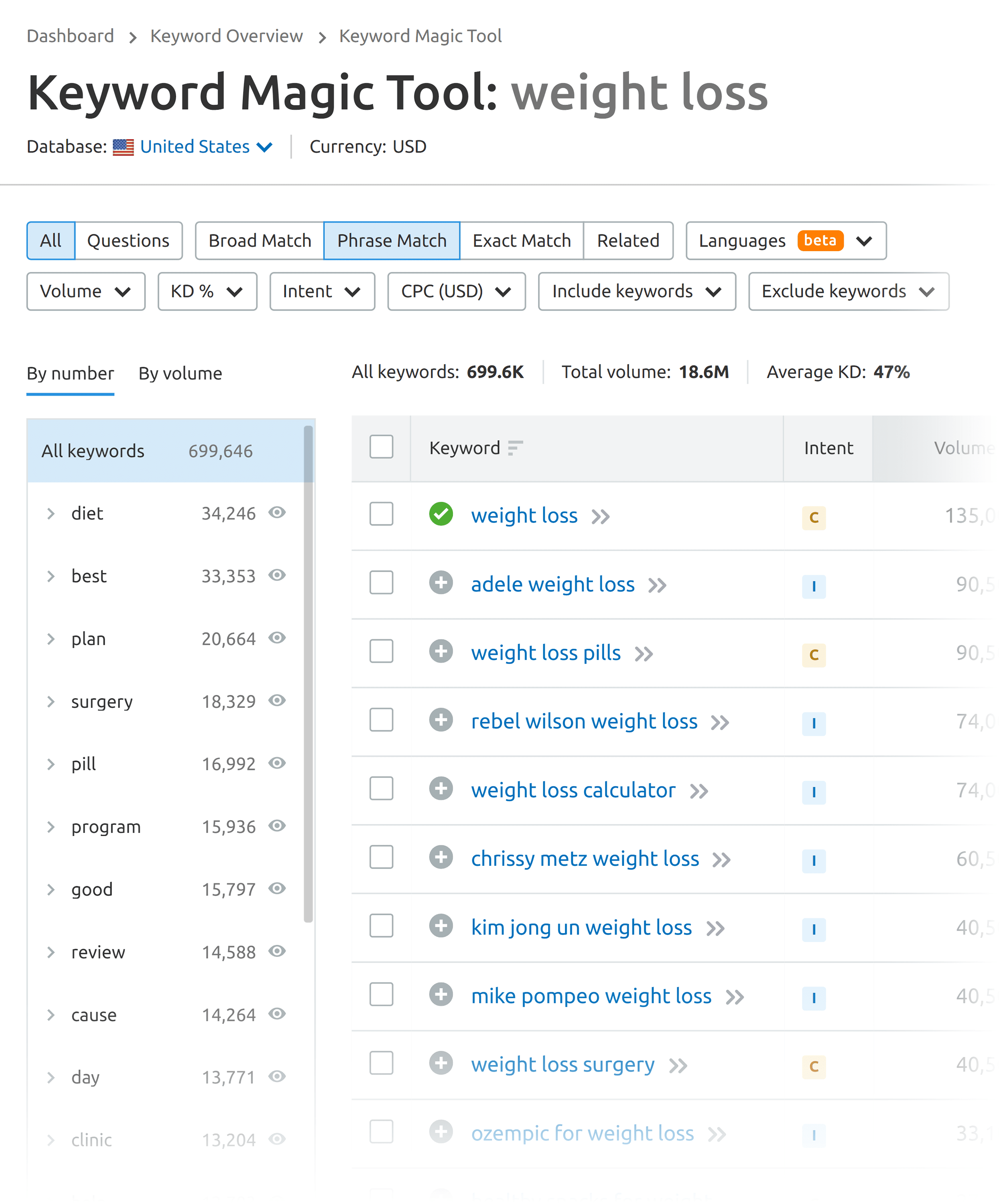
Credit: backlinko.com
Expert Tips For Maximizing Keyword Research
Keyword research is vital for any SEO strategy. Using the best tools can help you find the right keywords to target. Here are some expert tips to maximize your keyword research efforts.
Analyzing The Competition
Understanding your competition is crucial. You can see which keywords they rank for. This helps in identifying gaps and opportunities. Use tools like SEMrush and Ahrefs to analyze competitors’ keywords.
| Tool | Feature |
|---|---|
| SEMrush | Competitor Analysis |
| Ahrefs | Keyword Explorer |
By studying these tools, you can learn which keywords bring traffic. Focus on keywords with high search volume and low competition.
Tracking Keyword Performance
Tracking keyword performance is essential for success. Use tools like Google Analytics and Google Search Console. These tools help you monitor how well your keywords perform.
- Google Analytics – Tracks website traffic.
- Google Search Console – Monitors search queries.
Regularly check your keyword rankings. Optimize content based on performance data. This helps in improving your SEO strategy continuously.
Make sure to keep an eye on keyword trends. Trends change, and so should your keywords. Update your list to stay relevant and competitive.
Future Of Keyword Research Tools
The future of keyword research tools is evolving rapidly. New technologies are changing how marketers find and use keywords. These advancements are making keyword research faster and more accurate. Let’s dive into the exciting developments in this field.
Ai And Machine Learning Innovations
AI and machine learning are transforming keyword research. These tools analyze vast amounts of data quickly. They find patterns that human researchers might miss. This helps marketers identify high-value keywords with precision.
AI tools can also predict how keywords will perform. They use historical data to forecast future trends. This allows marketers to plan their strategies effectively. Here are some key benefits of AI in keyword research:
- Automated analysis of large datasets
- Identification of emerging trends
- Accurate predictions of keyword performance
Predicting Trends With Data Analysis
Predicting trends is crucial in keyword research. Advanced data analysis tools make this possible. They track changes in search behavior over time. This helps marketers stay ahead of the curve.
Data analysis tools can also segment data by demographics. This reveals how different groups search for information. Marketers can then tailor their strategies to specific audiences. Here’s a quick overview of how data analysis aids in trend prediction:
| Feature | Benefit |
|---|---|
| Real-time data tracking | Identifies shifts in search trends immediately |
| Demographic segmentation | Customizes strategies for target audiences |
| Historical data analysis | Forecasts future keyword performance |
Using these advanced tools, marketers can stay ahead in the competitive landscape. The future of keyword research is bright with these innovations.
Making The Right Choice For Your Needs
Choosing the best keyword research tool can be overwhelming. Different tools offer unique features and benefits. Your choice should align with your specific needs and goals. Below, we will guide you through key factors to consider.
Assessing Your Seo Maturity
Your SEO maturity level dictates the type of tool you need. Beginners may need user-friendly tools with basic functionalities. Advanced users often look for robust tools with detailed insights. Here are some examples:
| SEO Maturity Level | Recommended Tools |
|---|---|
| Beginner | Google Keyword Planner, Ubersuggest |
| Intermediate | SEMrush, Moz Pro |
| Advanced | Ahrefs, SpyFu |
Beginner tools are often free and easy to use. Intermediate tools offer more features and deeper insights. Advanced tools provide comprehensive data and competitive analysis.
Balancing Budget And Features
Your budget is a crucial factor in your decision. Some tools are free but offer limited features. Paid tools provide extensive functionalities and data.
- Free Tools: Suitable for small websites and blogs.
- Affordable Paid Tools: Ideal for growing businesses.
- Premium Tools: Best for large enterprises and agencies.
Here is a quick comparison of some popular tools:
| Tool | Price | Features |
|---|---|---|
| Google Keyword Planner | Free | Basic keyword suggestions and search volume |
| Ubersuggest | Free / $29 per month | Keyword suggestions, SEO audit, backlink data |
| SEMrush | $119.95 per month | Comprehensive keyword data, competitive analysis |
| Ahrefs | $99 per month | Extensive keyword data, backlink analysis |
Weigh your needs against your budget. A well-balanced choice ensures you get the most value. Choose a tool that provides essential features without overspending.
Frequently Asked Questions
What Is The Most Accurate Keyword Research Tool?
The most accurate keyword research tool is Ahrefs. It provides comprehensive data, insightful metrics, and user-friendly features for effective SEO.
Which Google Tool Is Used For Keyword Research?
Google Keyword Planner is the tool used for keyword research. It helps identify relevant keywords and their search volumes.
What Is The Most Accurate Keyword Difficulty Tool?
Ahrefs is often considered the most accurate keyword difficulty tool. It provides reliable data and user-friendly features.
Which Seo Tool Is Best?
The best SEO tool varies by needs. Ahrefs is excellent for backlinks. SEMrush offers comprehensive analysis. Moz is user-friendly.
What Are The Best Keyword Research Tools?
Some top tools include Ahrefs, SEMrush, Google Keyword Planner, Moz, and Ubersuggest.
Conclusion
Choosing the right keyword research tools can elevate your SEO strategy. These tools help you uncover valuable keywords. Enhance your content and reach your target audience effectively. Stay ahead in the competitive market by leveraging the best keyword research tools available.
Invest in these tools for better search engine rankings and online success.



